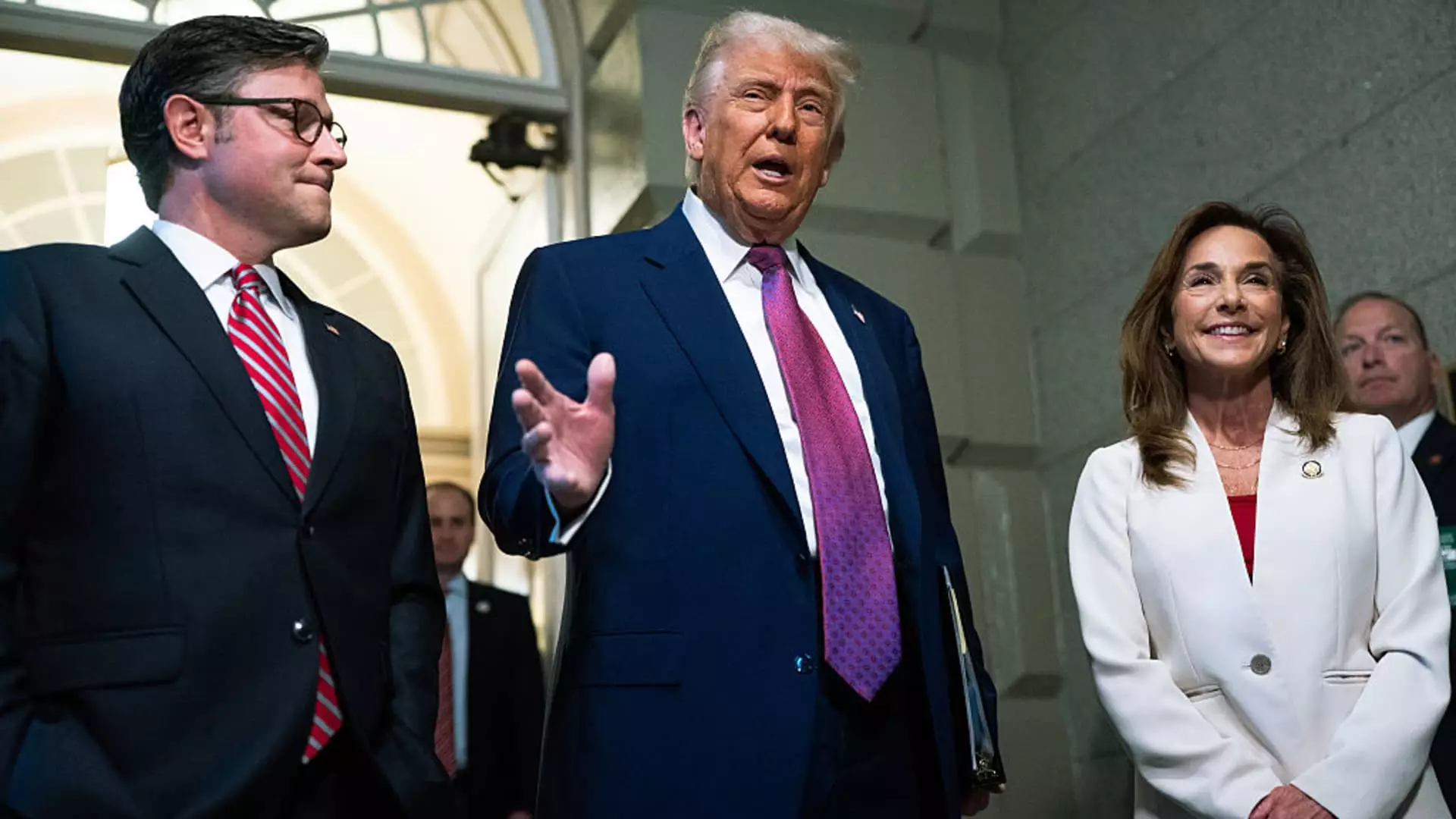In a dramatic display of partisan allegiance, the Republicans in the U.S. House of Representatives narrowly pushed through President Trump’s tax reform bill on a vote of 215-214. Democrats stood united against the legislation, while a handful of Republicans joined them or strategically abstained. This event marked a considerable accomplishment for the party leadership, who spent long months assembling a complex bill aimed at appealing to both moderate and hardline factions. However, this “big, beautiful” bill, as Trump calls it, does not stand as a testament to progress; rather, it symbolizes a troubling regression in fiscal responsibility and social equity.
The passage of such a comprehensive piece of legislation, over a thousand pages with countless amendments, is indicative of an unprecedented urgency in the Republican camp—an urgency rooted in political survival rather than genuine concern for economic prosperity. Those who closely follow these political maneuvers recognize that this massive overhaul of the tax system largely favors wealthier households while burdening the least advantaged. This tilt towards the affluent disregards the Democratic ethos of social responsibility and economic equality—a stance that should resonate with those who believe in a more equitable society.
The Dangerous Political Landscape
Speaker Mike Johnson’s fervent commitment to meet the self-imposed July 4 deadline highlights a frantic desperation rather than a careful commitment to prudent governance. The reliance on budget reconciliation to expedite the bill’s progress through the Senate sends an alarming message: urgency and political expedience have supplanted meticulous policy evaluation. As Johnson addressed the House, insisting that they could deliver on their promises to the president, one couldn’t help but wonder at what cost these promises come.
Senate Republicans have already signaled their hesitance to accept the bill as it stands, demanding modifications that align it more closely with their ideologies. This internal conflict hints at the fragility of the coalition maintaining this bill’s momentum. The situation underscores an essential truth of modern American politics: the Republican party, torn between populist sentiments and fiscal conservatism, is navigating a treacherous road that leads toward a fragmented and ineffective governance.
Redistributing Wealth: A Class Warfare Showdown
One illuminating aspect of the tax bill is its provisions around the SALT (state and local tax) deduction. While some conservative factions celebrated a large increase to the SALT cap, portraying it as vital for revitalizing the economy, the reality is starkly different. By favoring wealthier Americans—those who are much more likely to exceed the proposed income threshold—this bill exacerbates existing inequalities. The irony is palatable: an ostensibly pro-wealth policy that ends up punishing the poor while cushioning the affluent.
Moreover, a fresh analysis from the Congressional Budget Office suggests that this trend will continue; households in the lowest decile of income distribution will see their resources diminish while the highest decile will experience relative abundance. How can anyone who claims to prioritize growth and prosperity ignore this sobering outcome? The bill’s architects, amidst their celebratory triumph, appear to overlook that real economic growth should benefit all Americans, not just a select few.
Economic Consequences: A Looming Dilemma
As markets responded with immediate apprehension—witnessing the yield on the 30-year Treasury bond spike to 5.09%—investors’ concerns regarding potential deficits and long-term fiscal instability crystallize a precarious reality for our nation. The economic forecasts indicate that the bill may not provide the promised economic boost to the average American family. Instead, it could initiate a cycle of ballooning federal deficits that only serves to deepen the existing economic disparities.
The justifications from lawmakers who support this bill lack depth. Claims such as “kick-starting the economy” fail to withstand scrutiny when juxtaposed against the evidence of widening wealth gaps. Furthermore, the implications of cutting social safety nets in tandem with tax cuts for the rich signal a troubling trend in American politics: a prioritization of short-term gains over long-term stability and equity.
As this bill prepares to make its way through the Senate, one thing is clear: the current Republican leadership remains tethered to a vision of governance that favors the wealthy under the guise of economic growth. This trajectory must be challenged, for a sustainable future lies not in tax cuts for the affluent but in policies designed to uplift all segments of society. The American public deserves leaders who will steer clear of hollow triumphs and focus on meaningful reform that prioritizes equity and justice.


Leave a Reply